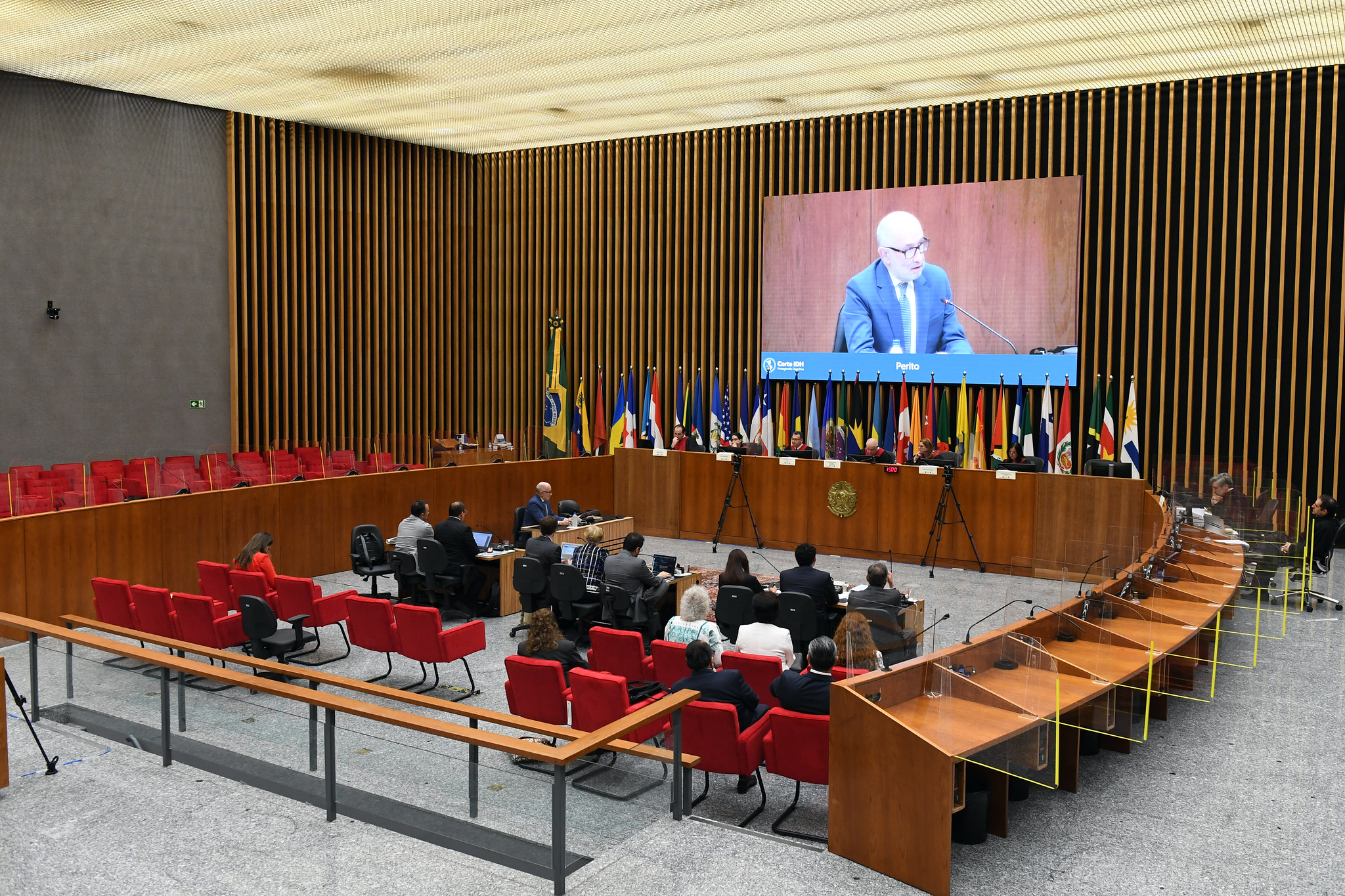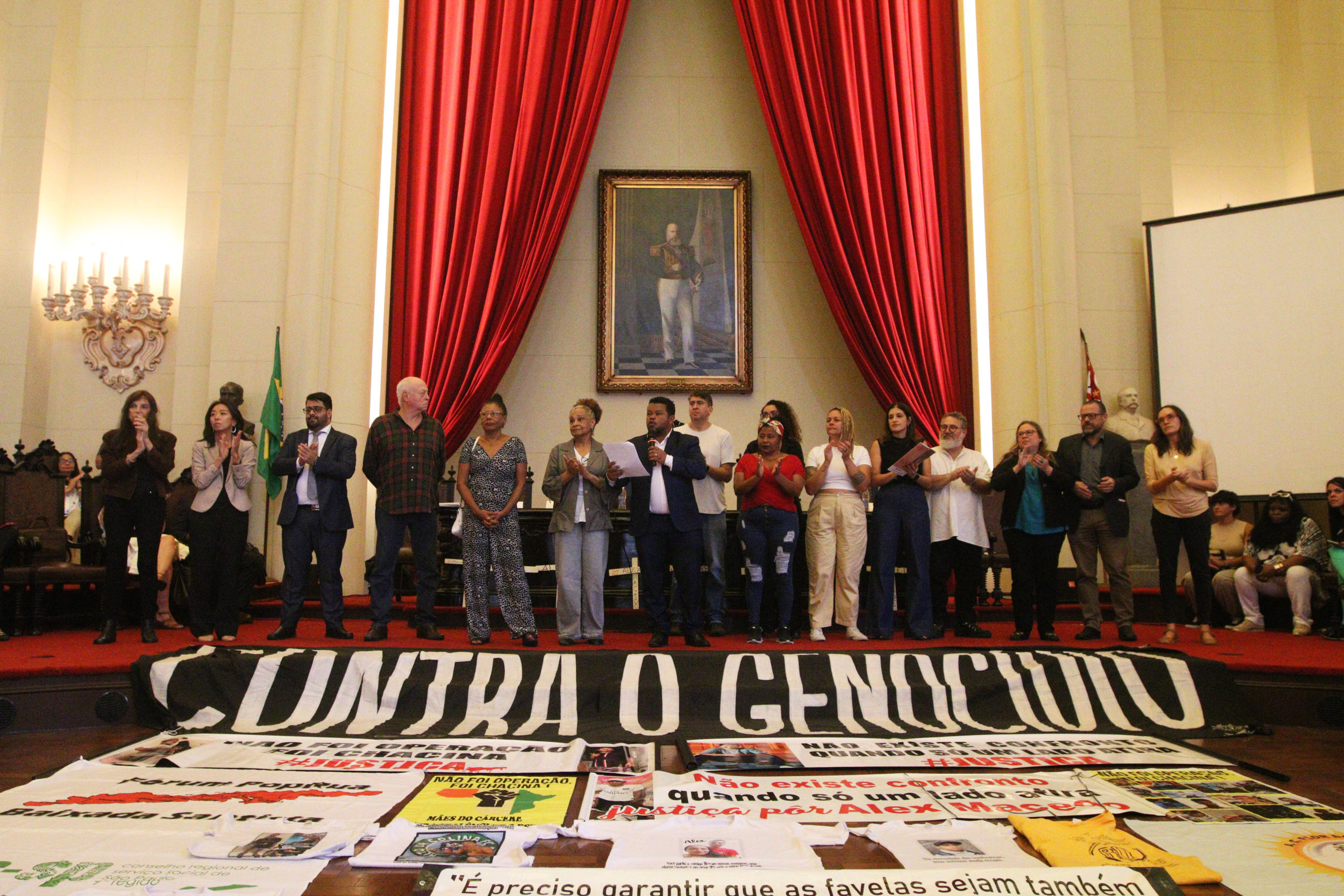Freedom of information :: Opaque powers
In a debate on the fourth year of the FOI law, experts criticize the lack of transparency in the Judiciary and in public security
To commemorate the fourth anniversary of Brazil’s Freedom of Information Law, a public seminar entitled “Paths to transparency: challenges and good practices in the implementation of the FOI law” was held on Thursday, May 12, in São Paulo. The event was attended by experts to discuss compliance with the law by the Judiciary and by the São Paulo State Public Security Department. It was organized by Conectas, Abraji (Brazilian Association of Investigative Journalism), Article 19 and Transparency Brazil.
 Kicking off the first panel of the event, a new report on the application of the FOI law in the country’s state courts was presented by Article 19. According to the executive director of the organization, Paula Martins, the Judiciary is the least transparent branch of the Brazilian government, both on the administrative and judicial level. “There is an overall lack of information on public participation, agendas and hearings,” she said.
Kicking off the first panel of the event, a new report on the application of the FOI law in the country’s state courts was presented by Article 19. According to the executive director of the organization, Paula Martins, the Judiciary is the least transparent branch of the Brazilian government, both on the administrative and judicial level. “There is an overall lack of information on public participation, agendas and hearings,” she said.
The report reveals that none of the country’s 27 state courts comply with the minimum criteria for active transparency required by the Freedom of Information Law. According to Martins, one of the most serious aspects identified by the study is the high number of unanswered information requests, which represent 56.8% of the total. She also pointed out that only 29% of responses are considered satisfactory.
Also present on the first panel was André Augusto Salvador Bezerra, president of the Executive Board of AJD (Association of Judges for Democracy), who discussed how the ideological policing of judges causes the Judiciary to be even less transparent. He said that many auxiliary judges occupy “strategic positions” in the courts and that the lack of criteria for appointing judges means they can be pressured by the president of the São Paulo State Court and by the governor. “After all, it’s the governor who has the last say on the budget of the Judiciary,” he said. Bezerra went on to claim that “there is no transparency whatsoever in the Judiciary, and when there is no transparency, there is no control. This, in theory, permits the ideological policing of the judges and, therefore, strips the courts of their democratic legitimacy”.
On the seminar’s second panel, Rafael Custódio, coordinator of the Justice program at Conectas, and Guilherme Siqueira de Carvalho, of the São Paulo State Ombudsman’s Office, debated good practices and the limits of secrecy in public security.
.jpg) While mentioning the steps taken by the São Paulo state government to reclassify civil and military police documents as secret, Custódio stressed the importance of the FOI law for the public interest. “It has been discovered, for example, that 973 deaths caused by off-duty police officers were excluded from the statistics. It’s alarming,” he said.
While mentioning the steps taken by the São Paulo state government to reclassify civil and military police documents as secret, Custódio stressed the importance of the FOI law for the public interest. “It has been discovered, for example, that 973 deaths caused by off-duty police officers were excluded from the statistics. It’s alarming,” he said.
Custódio explained that “the exceptions recognized by the law fit like a glove for the institutions that consider that the nature of their work requires secrecy”, citing as an example the failed attempt by civil society to gain access to the standard operating procedures of the São Paulo Military Police for street protests. “If it’s true that the culture of opaqueness pervades our institutions, with regard to public security institutions the FOI law benefits them,” he said.
According to Carvalho, there are circumstances when secrecy needs to be maintained to guarantee state action, but “to resolve this apparent contradiction, it is necessary to proceduralize the document classification process, since secrecy should not be viewed as being inherent to information”. He also said that “there is no area of the State’s activity more worthy of control than public security”.
Besides the debate panels, the seminar was also attended by representatives of Abraji and Transparency Brazil, who announced the development of a new collaborative platform for hosting FOI requests and responses. According to the two organizations, on the new site that will be launched before the end of the year “it will be possible to identify the problems with the law and enable the responses to each FOI request to be used by more people”.


